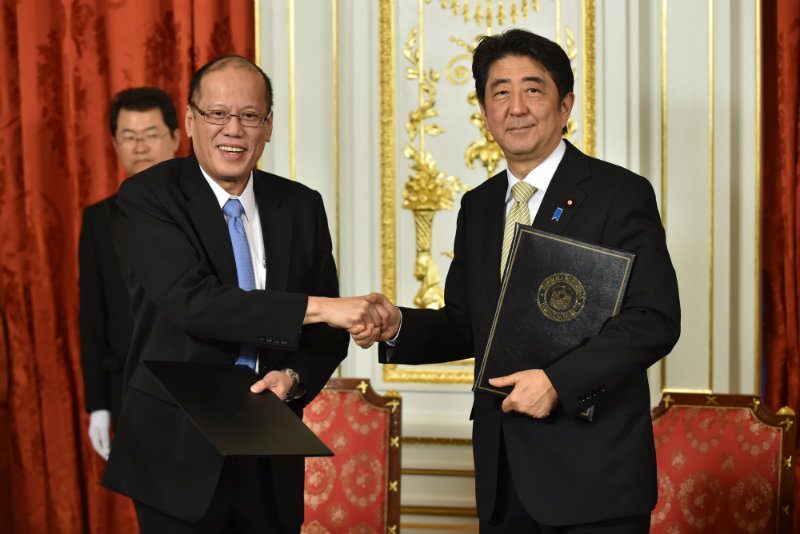SUMMARY
This is AI generated summarization, which may have errors. For context, always refer to the full article.
 During World War II, Nazi Germany and Imperial Japan wreaked havoc in Europe and Asia, respectively. Warsaw was the most destroyed city in Europe and Manila in Asia. In addition, the Japanese Imperial Army victimized an estimated 200,000 “comfort women” forced to work as sex slaves in Korea, China, the Philippines, Taiwan, and Indonesia.
During World War II, Nazi Germany and Imperial Japan wreaked havoc in Europe and Asia, respectively. Warsaw was the most destroyed city in Europe and Manila in Asia. In addition, the Japanese Imperial Army victimized an estimated 200,000 “comfort women” forced to work as sex slaves in Korea, China, the Philippines, Taiwan, and Indonesia.
An American friend posted on Facebook that he was so elated to read the news that the Philippine and Japanese governments have established very cordial and warm relations. He indicated that he did not believe he would live to see this day.
My reaction: Huh?
What are you talking about? All facts show that there was nothing spellbinding or groundbreaking about this intimate friendship between the two governments.
Asian reactions to Japanese aggression
China, Korea, and Taiwan have consistently protested the repeated attempt of the Japanese government to rewrite a revisionist history of World War II in Asia. It has tried to change the term “Japanese aggression” to the more neutral and generic “Japanese advances” during World War II.
The Philippine government has never given any official reaction to this.
It came as no big surprise that President Benigno Aquino III described Philippines-Japan relations as a “friendship of two suns” in his speech before the joint session of the Diet of Japan during his recent state visit.
No big deal.
In fact, it’s the culmination of the Philippine government’s relations with Japan, which was never antagonistic, post-World War II – even at times when the Japanese government attempted time and again to revise its history. Some outsiders wrongly believe that all Western Pacific Asian governments share the same sentiments about Japan. The truth is: the Philippines is not China or Korea.

Even if you read comments by Filipinos on the photos and write-ups about Aquino’s latest visit to Japan on Facebook, a cursory look shows that the common Filipino harbors no ill-feelings against Japan, including memories of World War II.
Is this a case of historical amnesia? One wonders. Is it because the common Filipino is very forgiving? Social psychologists can wager a guess. Is it because the Philippines is a little bit farther away from Japan than China, Korea, or Taiwan? Ask a political geographer for insights on whether distance matters.
But for progressive Filipinos, it’s a different story: they remember the sacrifices of the Hukbo ng Bayan Laban sa Hapon (Hukbalahap) guerrilla forces in their struggle against Japanese aggression.
Visiting Japanese forces agreement?
Another reason why Aquino is warming up to Japan is to seek some kind of military arrangement – if not alliance – as a buffer against China, which is actively reclaiming areas in the disputed West Philippine Sea. (READ: PH, Japan to begin VFA talks)
Aside from having a Visiting Forces Agreement (VFA) with the United States, Aquino is seeking a VFA with Japan to counter Chinese expansionism.
Before a group of Japanese business leaders, Aquino likened China to Nazi Germany, arguing that like Hitler’s Germany, China needs to be stopped. In the case of Germany, “unfortunately, up to the annexation of the Sudetenland, Czechoslovakia, the annexation of the entire country of Czechoslovakia, nobody said stop,” he said.
In fact, recently, the Philippines and Japan staged joint military exercises in West Philippine Sea.
Possible scenarios
There are several possible scenarios that may result from the Sino-Philippines maritime dispute.
One, the International Tribunal on the Law of the Sea (ITLOS) resolves the legal case the Philippine government has filed, and both parties abide by the ruling. Everyone lives happily ever after.
Two, ITLOS reaches a decision, to which one of the parties disagrees and ITLOS cannot enforce its decision. The squabbles and bickering continue.
Three, the conflict escalates into a hot war, involving the US, Japan, and the Philippines on the one side and China on the other side. The US will yet again be involved in another international armed conflict.
Dialogue or war? Where do we go from here? – Rappler.com
Rey Ty is a political observer, author, political theorist, comparativist, political risk and policy analyst, and lecturer. He received his doctorate from Northern Illinois University and Master’s degrees from the University of California at Berkeley and Northern Illinois University.
iSpeak is Rappler’s platform for sharing ideas, sparking discussions, and taking action! Share your iSpeak articles with us:move.ph@rappler.com.
Tell us what you think about this iSpeak article in the comments section below.
Add a comment
How does this make you feel?
There are no comments yet. Add your comment to start the conversation.